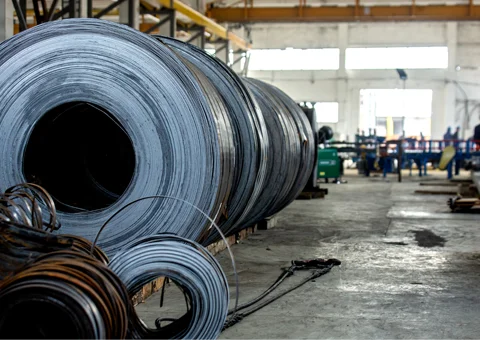The US Energy Department on Monday announced $6 billion in federal funding to subsidize 33 industrial projects in 20 states to cut carbon emissions, saying the investment would support well-paying union jobs and boost US competitiveness.
Energy Secretary Jennifer Granholm will unveil the awards during a visit to a Cleveland-Cliffs Steel Corp facility in Middletown, Ohio, which will receive up to $500 million to install two new electric arc furnaces and hydrogen-based technology to reduce greenhouse gas emissions by 1 million tons.
Granholm said the initiative, the single largest industrial decarbonization investment in US history, would leverage a total of $20 billion, including the companies’ share of the costs. Together, the projects are expected to eliminate 14 million metric tons of pollution each year, equivalent to taking some 3 million gas-powered vehicles off the road, she said.
The Portland Cement Association, an industry group, said the funding “is a welcome acknowledgement from the government that America’s cement manufacturers are taking ambitious and significant steps toward reaching carbon neutrality.”
Manufacturing of construction materials is a significant source of global carbon dioxide (CO2) emissions. Production of cement, the main ingredient of concrete, accounted for 7% of global CO2 emissions in 2019, the International Energy Agency estimates.
The awards come as President Joe Biden’s 2024 reelection campaign kicks into high gear, with the Democratic president and other key officials traveling to battleground political states to tout the administration’s economic policies and job creation.
Granholm said the projects would slash emissions from industries such as iron and steel, cement, concrete, aluminum, chemicals, food and beverages, pulp and paper, which account for about a third of US carbon emissions.
Century Aluminum will receive up to $500 million to build the first new US primary aluminum smelter in 45 years in the Mississippi River basin. The project will double the size of the current US primary aluminum industry and avoid 75% of emissions from a traditional smelter.
The United States was the leading primary aluminum producer in the world in 2000 but is now ninth with four US smelters in operation, down from 23 in 1993, said energy group SAFE.
“A new domestic smelter puts the US back in the game and reverses our dangerous, decades-long decline in primary aluminum production,” said Joe Quinn, director of the Center for Strategic Industrial Materials at SAFE.
Dow Chemical will receive up to $95 million for a US Gulf Coast facility to use approximately 100,000 tons of CO2 annually to produce key components of electrolyte solutions needed for electric vehicle batteries, while Kraft Heinz will get up to $170.9 million to upgrade and decarbonize operations at 10 facilities, reducing annual emissions by more than 300,000 tons of carbon dioxide annually.
ExxonMobil won a $331.9 million award to enable the use of hydrogen in place of natural gas for ethylene production in Baytown, Texas for the key chemical feedstock in textiles, synthetic rubbers, and plastic resins.
The Energy Department said nearly 80% of the projects are in disadvantaged communities that had experienced years of divestment.
